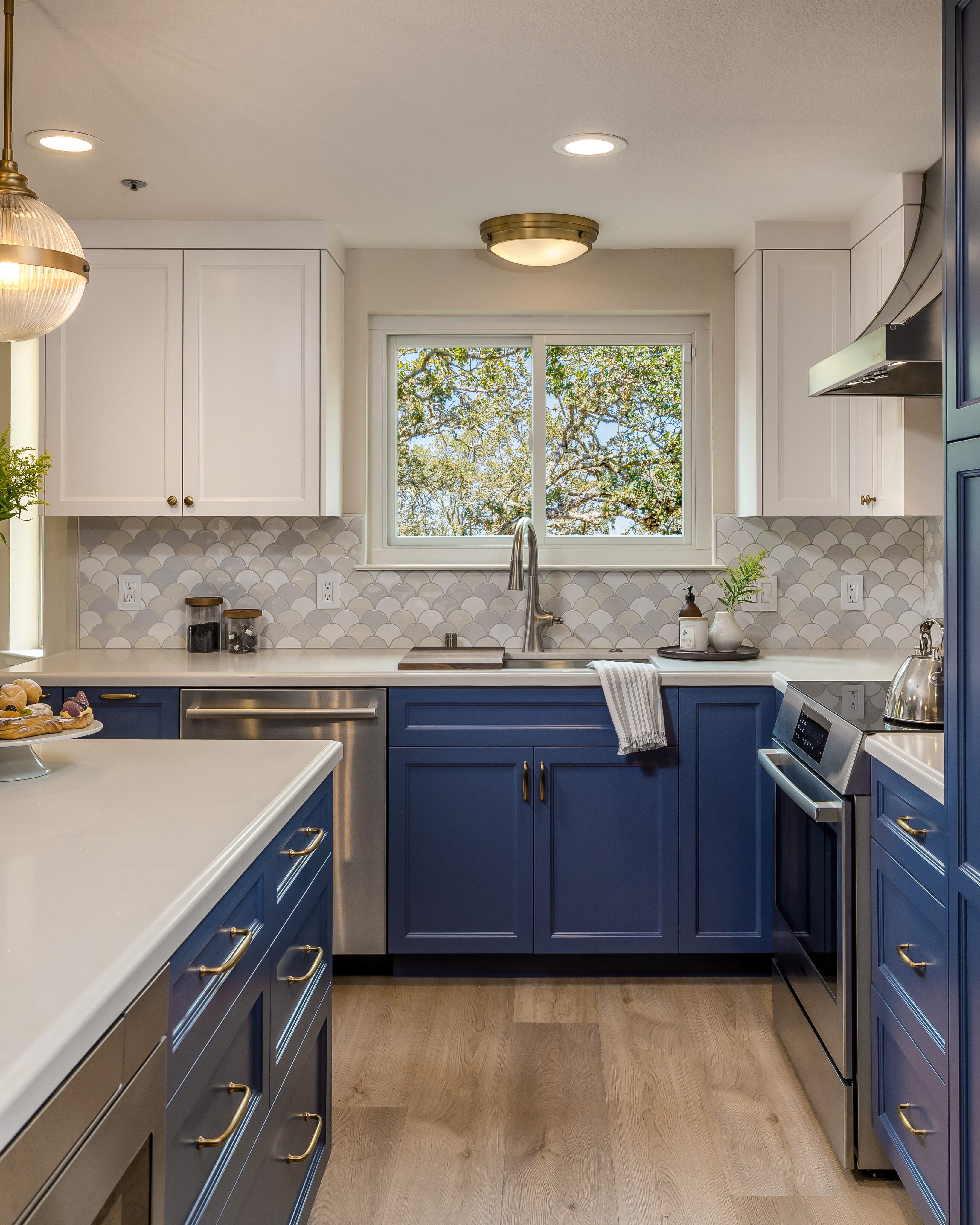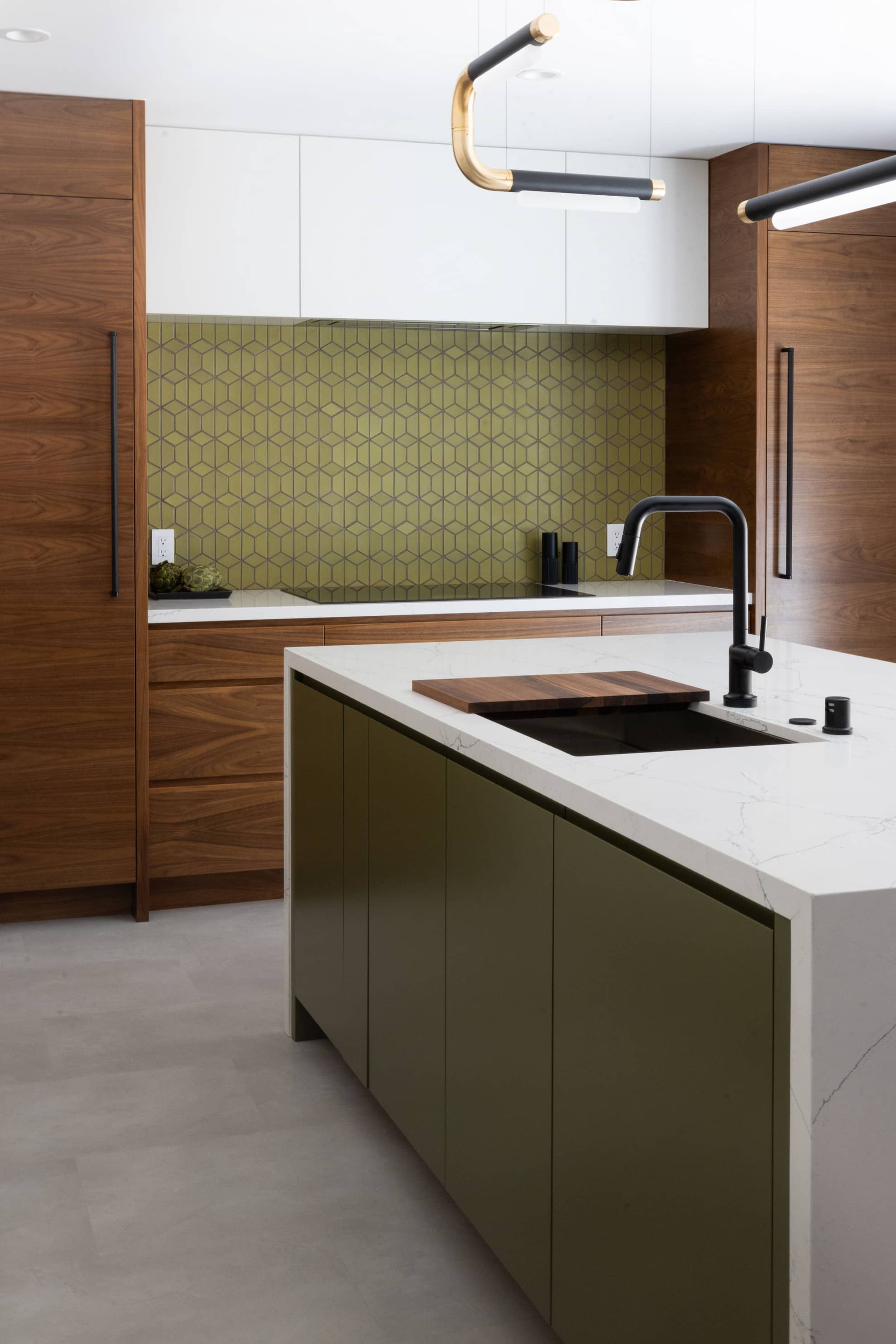Designing a Kitchen That Works for Everyone
When you want to make your kitchen fun, functional, and easy to use for all ages and abilities, it’s time to think past the traditional triangle layout. Historically, kitchens have been designed for the “average” 5’4” female—but today’s homes are shared by everyone: men, women, kids, seniors, and individuals with mobility needs. A universal kitchen design ensures your space adapts to everyone, regardless of age, size, or ability.
If you’re planning a kitchen remodel and want to incorporate elements of universal kitchen design, here are the essentials you should consider.
Get Access to the Universal Kitchen Design Checklist
Vary Your Countertop Heights
Standard countertop heights don’t work for everyone. In a universally designed kitchen, having multiple countertop heights supports a wider range of users.
- Lowered countertops (around 30–34 inches) are ideal for seated users, such as children or wheelchair users.
- Standard-height counters (36 inches) can remain for general use.
- Consider adjustable countertops that can raise or lower with the push of a button—perfect for multigenerational households or homeowners planning to age in place.
This thoughtful approach helps create a kitchen that’s as inclusive as it is beautiful.
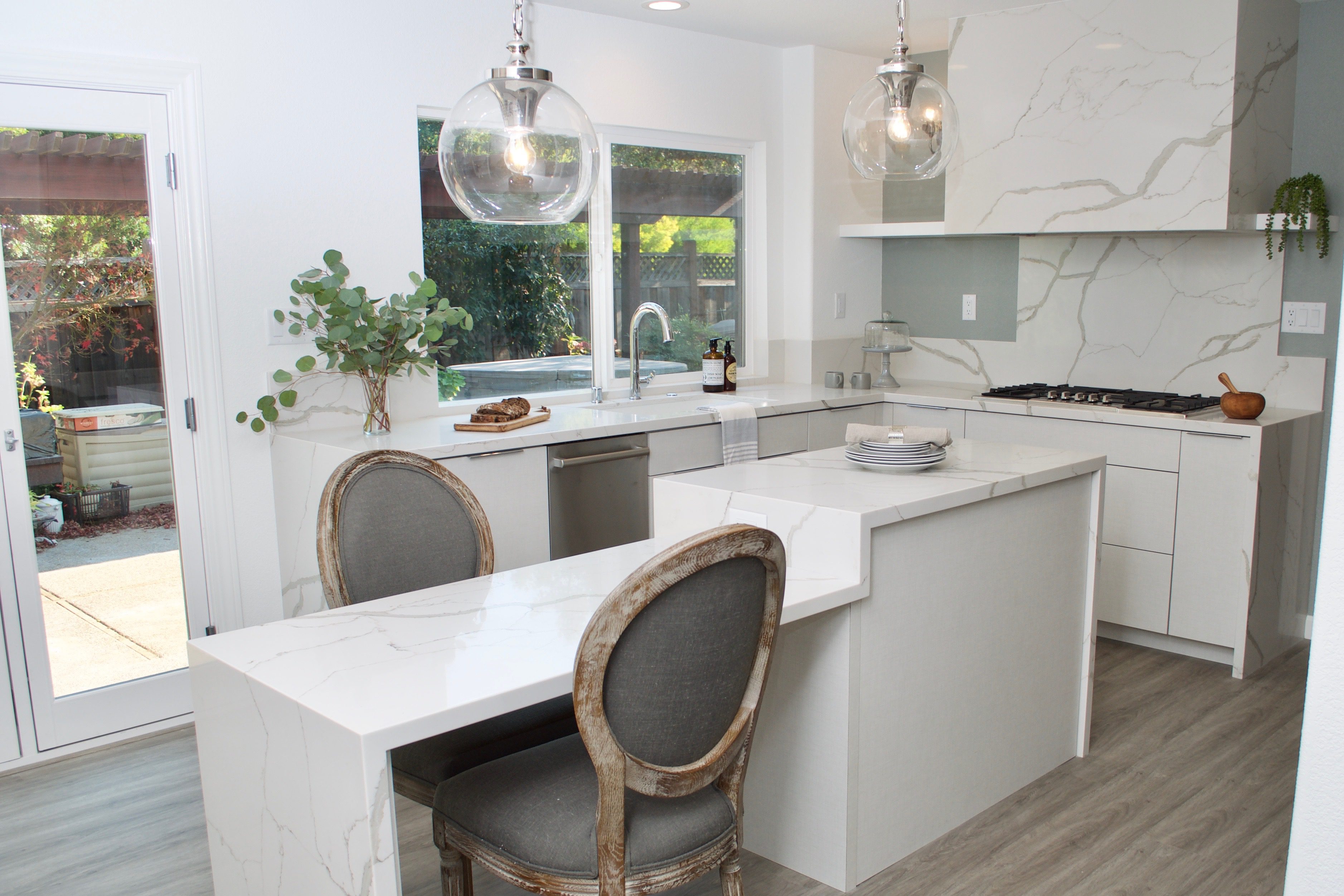
Smart Layout = Smarter Living
A universal kitchen layout eliminates barriers and improves flow.
Thoughtful Appliance Placement
Position appliances where they are easy to access:
- Microwaves can be placed in lower cabinets or in microwave drawers, making them accessible to seated users.
- Consider installing wall ovens at an ergonomic height to reduce the need for bending or reaching—great for users with back pain or limited mobility.
- Side-opening oven doors and cooktops with front-mounted controls improve safety and usability.
Refrigerator Options
An under-counter or drawer-style refrigerator allows easier access to fresh food for kids and wheelchair users. Split units or column refrigerators can also help distribute food storage more effectively across various zones in the kitchen.
Universal Design-Friendly Appliances
When choosing appliances, look for models that enhance comfort, safety, and accessibility.
- Drawer dishwashers: These reduce the need to bend down, are easier to load and unload, and allow for flexible wash cycles.
- Induction cooktops: A safer alternative that only heats when in contact with cookware—ideal for families with children or elderly users.
- Touch or voice-activated appliances: Ideal for users with limited hand strength or dexterity.
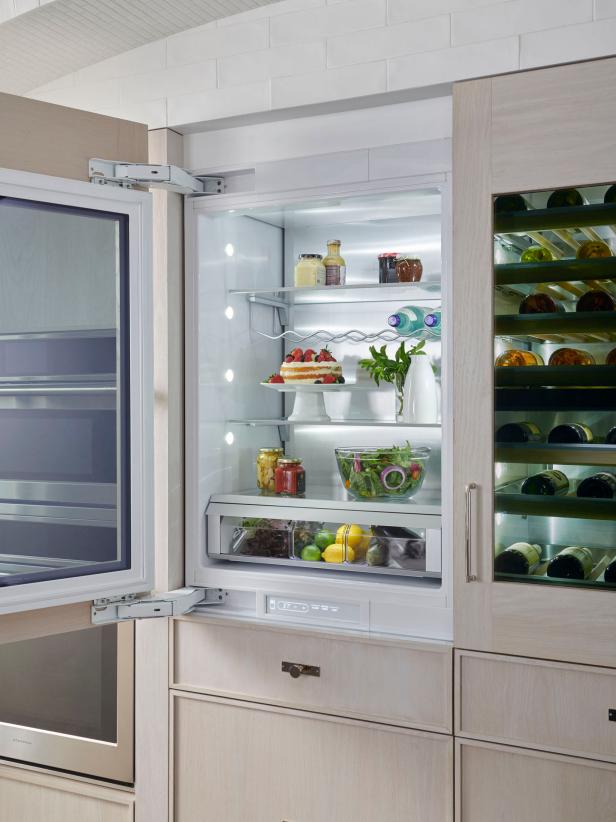
Similarly, alternative sized refrigerators can be installed slightly below counter level so that contents are accessible for those with mobility issues.
Safety is the Foundation
Cooking causes nearly half, about 49%, of all home fires in the U.S. With that in mind, an induction stovetop can be a safer alternative to gas or electric. These stovetops don’t heat unless they’re in contact with a pot, even if it’s inadvertently left on.
A kitchen designed for everyone must also prioritize safety in the following compartments:
- Ensure aisles are at least 42–48 inches wide for easier wheelchair navigation.
- Choose slip-resistant flooring and remove throw rugs to avoid tripping hazards.
- Install rounded corners on countertops to minimize injuries from bumps or falls.
- Include automatic shut-off features on stoves and ovens for added peace of mind.
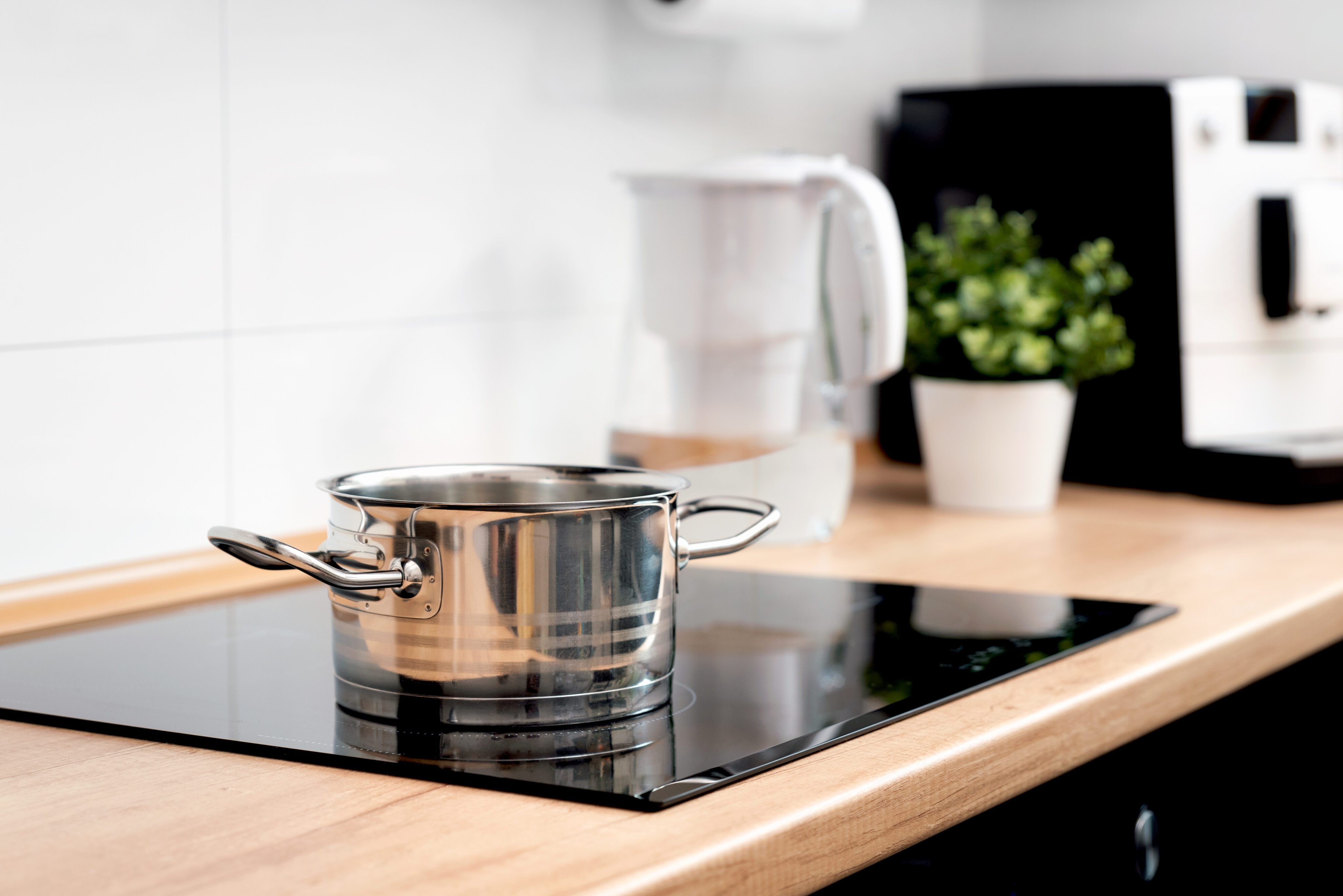
Better Storage for a Better Experience
Traditional cabinetry often requires bending, reaching, or awkward movements. In a universal kitchen design, storage works smarter.
- Opt for deep drawers instead of cabinets so contents come to you.
- Pull-out shelves and lazy Susans make every inch usable and accessible.
- Install soft-close hardware to prevent slamming and add ease of use for those with arthritis or limited strength.
Cabinet Hardware and Hands-Free Access
Cabinet and drawer hardware can make a surprising difference in daily usability.
- Choose lever-style handles instead of knobs for easier grip.
- For a modern look, go handleless with push-to-open systems—ideal for users with limited mobility or a minimalist aesthetic.
- Add motorized lift systems for upper cabinets, which bring storage within reach at the press of a button.
Lighting and Visual Accessibility
Proper lighting isn’t just about ambiance—it’s a core part of universal kitchen design.
- Task lighting over work areas like sinks and counters enhances visibility.
- Use under-cabinet lighting to reduce shadows and improve safety.
- Color contrast between cabinets, countertops, and flooring improves depth perception and spatial awareness—helpful for aging eyes or low vision.
Plan for the Future with Universal Kitchen Design
Designing a kitchen that grows with you means thinking ahead. Whether you’re raising a family, caring for aging parents, or planning to age in place, universal kitchen design ensures that your home remains functional and safe—without sacrificing style.
Ready to Begin?
Interested in creating a kitchen that’s accessible, safe, and beautiful? Schedule a no-obligation consultation with our design team. We’ll help you create a personalized plan that integrates universal kitchen design principles into every detail.
